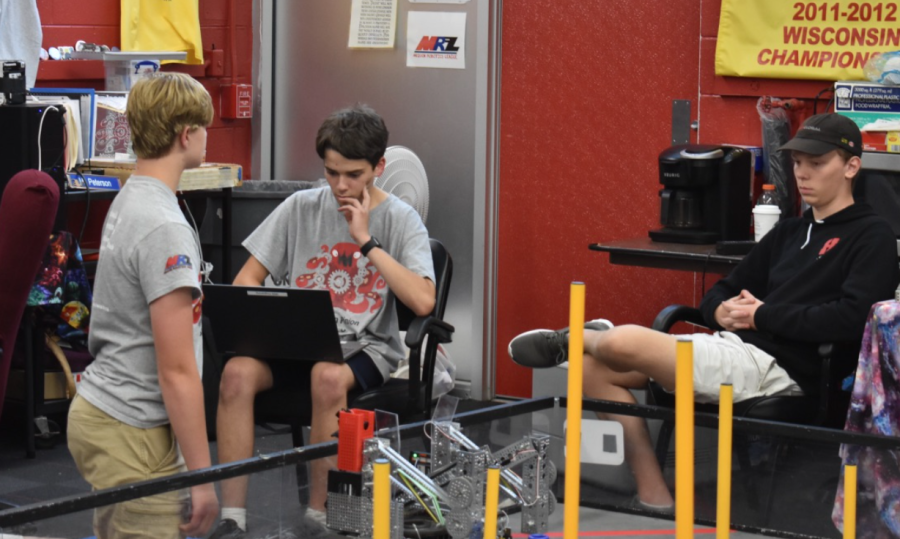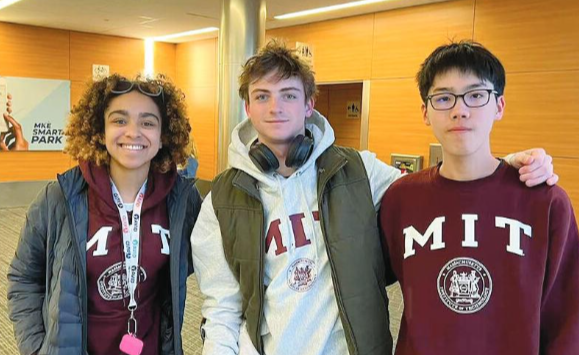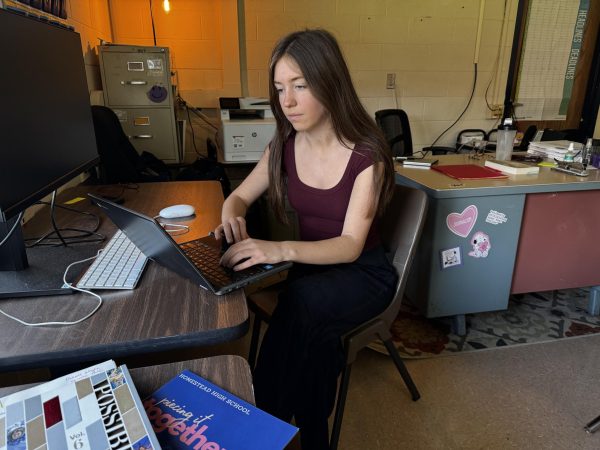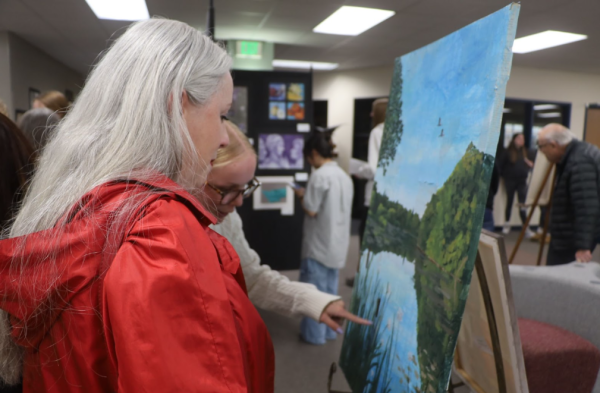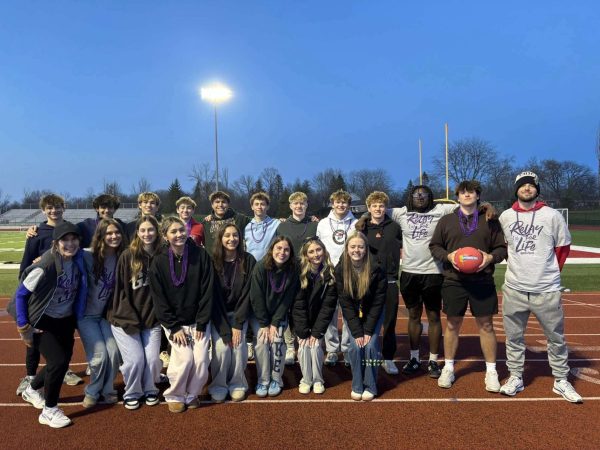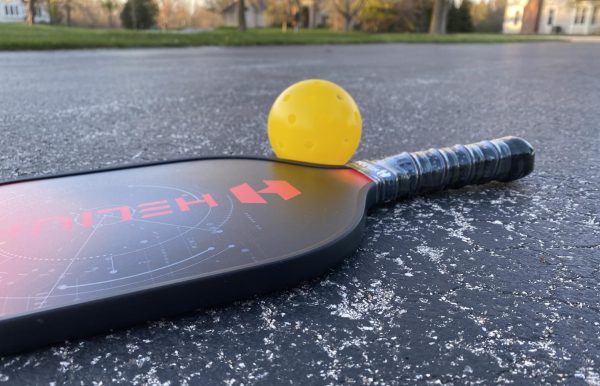Highlanders compete in a 30-hour robotics challenge
Jett Boettcher, Corey Hurda, juniors, and Adam Aufderheide, senior, members of Kraken Pinion, work to program their new robot for the challenge.
Thirty hours to design, build, program, test, and compete a robot.
Teams from all around the area came to Homestead to compete in the challenge of creating a robot in just 30 hours. According to Adam Aufderheide, senior, “Every year we participate in a program called First and every year they release a new challenge, and the day they released the challenge was (the day of the competition). So, for 30 hours after the challenge we basically stayed in that room and built a robot.”
In the 30 hours of the competition, the teams “had to design and build a robot from scratch as well as program it to be controlled by the drivers and operate autonomously for a portion of the match” according to Corey Hurda, junior and member of the Homestead team, Kraken Pinion.
The task for the competition was to put cups with a hole in the bottom on poles sticking out of the field. Their goal was to pick up these cups and be able to place them on the poles.
After the 30 hours of work, there were “Four teams at the event total that competed at the end,” Hurda said. These teams included two Homestead teams, Kraken Pinion, the varsity team, and Great Scott, which is comprised of mostly freshmen. Also included in the challenge were teams from the surrounding area.
When planning and constructing a robot, many factors must be considered. Aufderheide said, “We had a big strategy meeting at the beginning but there’s a lot of different decisions. We have a double reverse four bar and we decided on that basically so we could get the height without having more motors than we needed”
With only 30 hours to plan, construct, program and test, there is no time to waste. By constructing in the way that they did, Kraken Pinion was able to have multiple hours to program and test, eventually resulting in them winning out of the four teams competing at Homestead.
According to Aufderheide, the hardest part of the whole competition was “doing it fast, cause we do this every year, but we’ve never really done it in 30 hours.” Those 30 hours may seem like it is a lot of time, but to the students this was extremely short compared to the months they typically have.
Therefore, having limited time also means that there was no time for the competitors to sleep. Aufderheide says, “I’m really tired, I drank a lot of caffeine”. The teams stayed in Homestead from 10 a.m. on Saturday to 6 p.m. on Sunday, only leaving the robotics room a few times.
According to Hurda, “at the end our team, in partnership with one of the other teams that was there, got a score that from everything that is published is the second place world high score.”
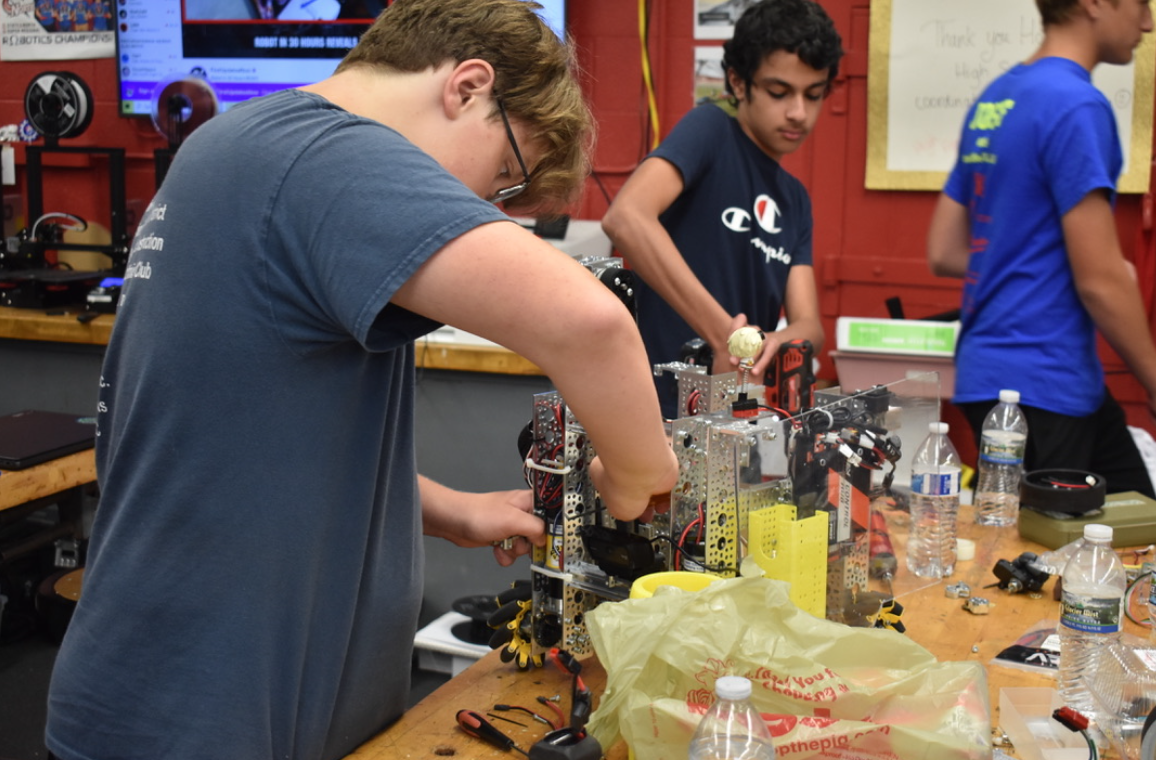

Greer Patten is a senior at Homestead High School. She is thrilled to be on the amazing Pubs team as an Assistant Editor for the second year! Outside of...

